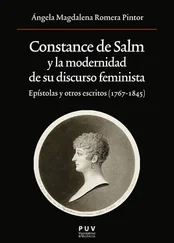Magdalena Tulli - Flaw
Здесь есть возможность читать онлайн «Magdalena Tulli - Flaw» весь текст электронной книги совершенно бесплатно (целиком полную версию без сокращений). В некоторых случаях можно слушать аудио, скачать через торрент в формате fb2 и присутствует краткое содержание. Год выпуска: 2007, Издательство: Archipelago Books, Жанр: Современная проза, на английском языке. Описание произведения, (предисловие) а так же отзывы посетителей доступны на портале библиотеки ЛибКат.
- Название:Flaw
- Автор:
- Издательство:Archipelago Books
- Жанр:
- Год:2007
- ISBN:нет данных
- Рейтинг книги:5 / 5. Голосов: 1
-
Избранное:Добавить в избранное
- Отзывы:
-
Ваша оценка:
- 100
- 1
- 2
- 3
- 4
- 5
Flaw: краткое содержание, описание и аннотация
Предлагаем к чтению аннотацию, описание, краткое содержание или предисловие (зависит от того, что написал сам автор книги «Flaw»). Если вы не нашли необходимую информацию о книге — напишите в комментариях, мы постараемся отыскать её.
Flaw — читать онлайн бесплатно полную книгу (весь текст) целиком
Ниже представлен текст книги, разбитый по страницам. Система сохранения места последней прочитанной страницы, позволяет с удобством читать онлайн бесплатно книгу «Flaw», без необходимости каждый раз заново искать на чём Вы остановились. Поставьте закладку, и сможете в любой момент перейти на страницу, на которой закончили чтение.
Интервал:
Закладка:
Enjoying rare privileges, the airmen seemed nevertheless not to notice them or to appreciate them — for them and for many others, these privileges were unquestionable and only too well deserved. But it was precisely for the uniforms that room was found in the soft armchairs — not for the bodies, which were able to relish comfort only when the opportunity presented itself, though they were filled with their own characteristic pride and an illusory belief that the world lay at their feet. In reality it lay at the legs of their uniform pants, and at their polished regulation boots. What would the general’s protruding belly, or the adjutant’s skinny ribs, have been without the insignia of rank? No sign, no indication that could have guided fate, was written on their delicate pink skin. Any integument seems an equally suitable costume in the face of sudden death or lucky survival, in scenes of adulation or abasement. The body has no influence and thus is of scant significance. And since this is the case, despite the neatly trimmed mustache, despite the cool glint of confidence in the eye, despite the bold gestures and the courteous loftiness coloring every utterance in a natural manner before it leaves the lips, bodies alone are at home in any situation. They belong just as well in comfortable armchairs or at a large desk with phone at hand as they do on the bare pavement down there below, where there is no access to a telephone even in matters of the utmost urgency. What, therefore, could give a body importance and define its capabilities, if not that most important circumstance: the quality of the fabric and the cut of the garment?
The image of the refugees emerging from the streetcar in their dark overcoats, victims of an unknown disaster who from a sudden twist of narrative lost not just the roof over their heads but also the freedom to regulate their own affairs and due respect — this image, then, from the very beginning called for an appropriate counterbalance. And so the presence of a few fine-looking officers seemed to all those witnessing the events, especially the defenders of local law and order, to be no accident — rather, it was a historical necessity that in its own way was obvious and well-grounded in realities familiar to everyone, against the background of the yellowing plaster. And since the officers were seen entering the government building in their immaculate uniforms, no one doubted that they knew best what needed to be done next.
Thus, by virtue of his rank and the braiding he wore, the air force general was obliged to receive a report from the commander of the order guard. He even clapped him on the shoulder, offered him a cigarette with a classy mouthpiece, and attempted discreetly to find out what on earth was going on here, since from the very beginning he’d been unable to make head or tail of it: in his story, from which he had come and to which he intended to return, the best military order prevailed, and he was unaccustomed to anything else. He was willingly given exhaustive explanations, from which he understood even less. The guards, who were lined up two deep in the hallway, at an order from their commander raised an appropriate cheer, upon which a dust-covered picture fell off the wall. And since he was expected to, the general personally gave the at-ease. He could have demanded much more — the soldiers would eagerly have obeyed any instruction whatever that was lit up by the golden sheen of the braid on his collar. But he did not deign to issue any other orders.
The column of guards had barely marched away, their boots clattering on the stairs, when a line of petitioners formed outside the director’s office. For instance, the baker in his white apron was prepared to bake rolls for the refugees right away, so long as he received an official guarantee that his costs would be reimbursed. He presented one part of his calculations then and there, writing columns of figures on a sheet of paper; the other part he would not share with anyone, keeping it to himself as a trade secret. What had happened was that in the morning he had bought large quantities of flour for his reserves, but upon opening the sacks he found the contents to be of dubious quality, and he was seeking to get rid of it as quickly as possible in a manner advantageous both to himself and to others. The air-men refused to speak with the baker about the estimate, which they did not understand, being above all unaccustomed to occupying themselves with such details. They gave instructions for the rolls to be baked immediately. To emphasize the fact that this was a matter of duty, the general even pounded his fist on the table, after which, considering the matter closed, he ordered the baker to leave.
The pharmacist appeared requesting a special allocation of dressing supplies from the government stores, in case for instance there were disturbances, which, he suggested, could not be ruled out in view of the influx of outsiders. His application appeared to have a legal basis: he backed it up with the argument that victims of disturbances never pay for their own treatment. In such a case, he was unwilling to cover the costs from his own pocket; and the general was forced to admit that there was no reason why he in particular should be expected to put himself out. Since the pharmacist knew which storeroom the dressing materials were kept in, the necessary keys were brought from the custodian’s office and the door was officially opened. But the storeroom proved to be empty; there was only one solitary packet of bandages lying in a corner, and in place of sterile gauze, on the shelf they found a carton of chocolate bars, one of which moreover had been opened; someone had taken a bite out of it and wrapped it back up in crumpled silver foil.
The third person to enter the director’s office was the notary. Cognizant of the fact that the resolution of his problem did not lie within the purview of the officials, he merely wished to report the disappearance of his son. He quoted the policeman, who had said there was nothing he could do in the matter. At this point one of the airmen, perhaps the one who was continually yawning, recalled that a moment ago as he was looking out the window he had seen two boys, a bigger one and a smaller one, crossing the roof of one of the neighboring buildings. The general listened attentively. He took the worried father respectfully by the elbow and led him to the window. For a short while everyone stared intently at the roofs. But there were no boys up there. The information given by the yawning officer seemed vague and not particularly plausible, and he might even have been thought to have imagined it. And so no progress was made in the notary’s case, and his anxiety went unassuaged.
The baker too was in a quandary. He couldn’t decide whether it was better for his business to make as few of the aforementioned rolls as possible, or if it made more sense to use up all the flour at once. He could bake only a small amount, just enough to satisfy the general’s order, but if after the director came back it turned out that the authorities would refund the costs, he would be left with the bitter regret of having missed the opportunity to liquidate the whole lot — all those damned stockpiles of adulterated flour that he had mistakenly bought. On the other hand, the baker was worried that if he used up all of his poor-quality supplies and the refugees ate everything, and then the authorities refused to reimburse him, it would be a complete waste of the money he had spent so rashly that morning, in the grip of the prevailing panic. In the end, caution led him to bake only a small batch of rolls exclusively for the children from the orphanage. The airmen were said to have supplemented this gift generously by distributing one bar of chocolate per child; word of this spread quickly, preceding the handout itself. Upon hearing about the chocolate, certain of the locals tapped their foreheads to indicate the absurdity of the notion, as they had when the taxicabs were supposed to come, and they asked sarcastically if the chocolate too would be American. Others actually already knew it was.
Читать дальшеИнтервал:
Закладка:
Похожие книги на «Flaw»
Представляем Вашему вниманию похожие книги на «Flaw» списком для выбора. Мы отобрали схожую по названию и смыслу литературу в надежде предоставить читателям больше вариантов отыскать новые, интересные, ещё непрочитанные произведения.
Обсуждение, отзывы о книге «Flaw» и просто собственные мнения читателей. Оставьте ваши комментарии, напишите, что Вы думаете о произведении, его смысле или главных героях. Укажите что конкретно понравилось, а что нет, и почему Вы так считаете.












